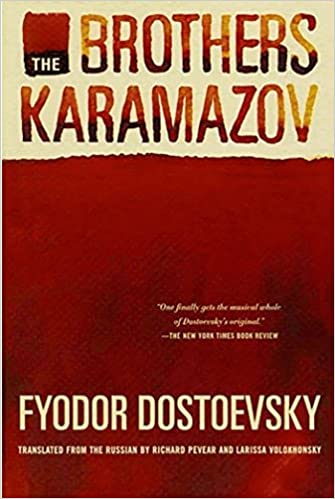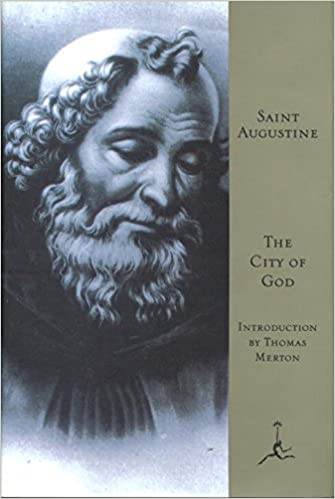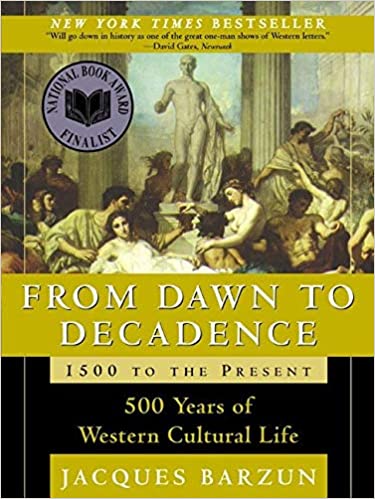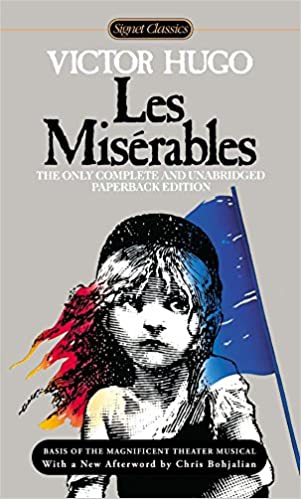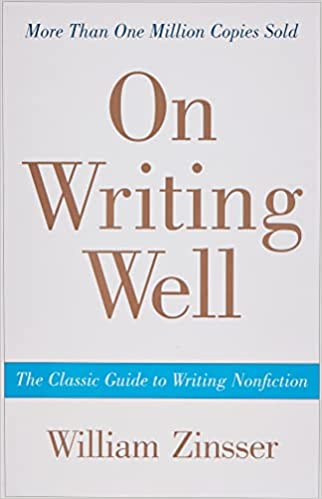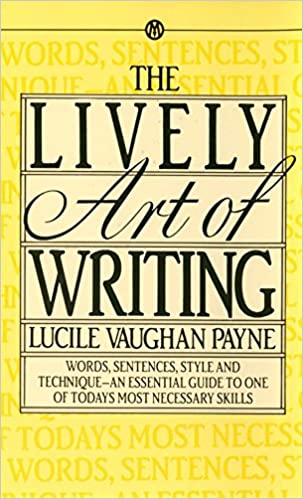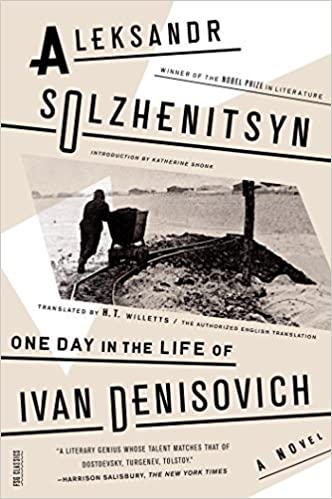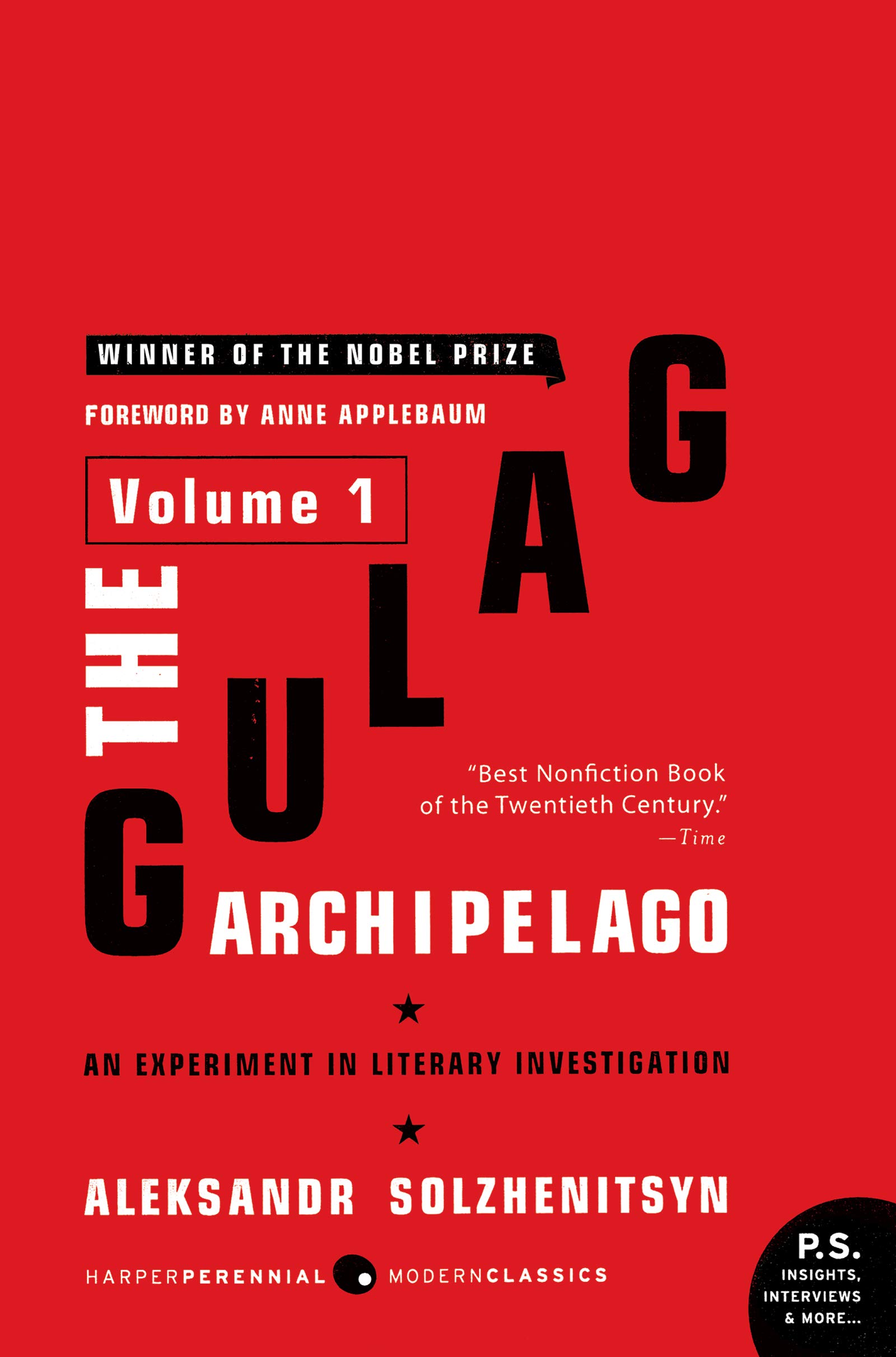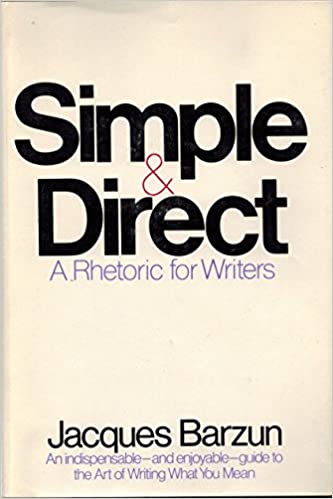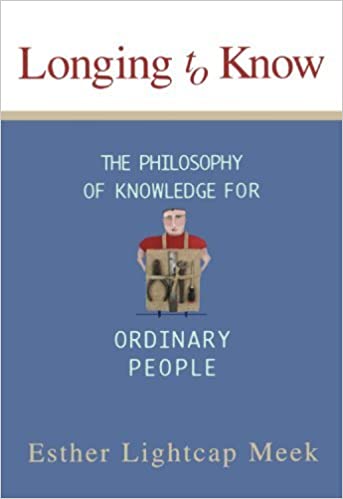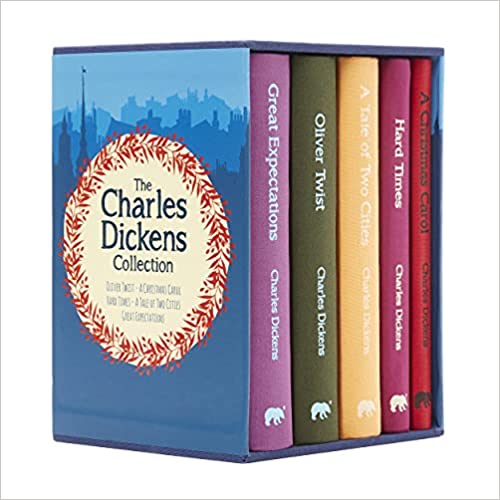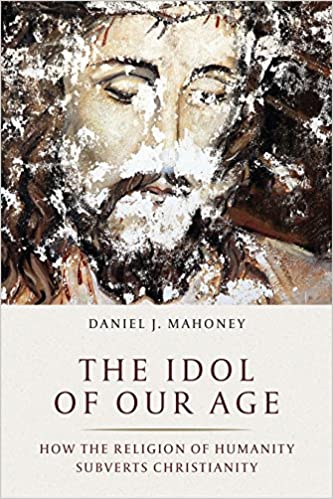The Brothers Karamazov
"The Brothers Karamasov is a murder mystery, a courtroom drama, and an exploration of erotic rivalry in a series of triangular love affairs involving the “wicked and sentimental” Fyodor Pavlovich Karamazov and his three sons―the impulsive and sensual Dmitri; the coldly rational Ivan; and the healthy, red-cheeked young novice Alyosha. Through the gripping events of their story, Dostoevsky portrays the whole of Russian life, is social and spiritual striving, in what was both the golden age and a tragic turning point in Russian culture.
This award-winning translation by Richard Pevear and Larissa Volokhonsky remains true to the verbal
inventiveness of Dostoevsky’s prose, preserving the multiple voices, the humor, and the surprising modernity of the original. It is an achievement worthy of Dostoevsky’s last and greatest novel."
City of God (Modern Library version)
First published in the first part of the 5th century A.D., “The City of God” is Saint Augustine’s highly influential work of Christian philosophy. This expansive theological work provided an articulate defense of Christianity against the claims that it lead to the downfall of Rome in the years preceding its publication. It outlines a citizenship that goes beyond the worldly, the political, and the self-centered, instead focusing on a place where the inhabitants are devout, God-focused, and seeking grace. In examining history with a clear perception of good and evil, Augustine was in effect interpreting human actions in relation to eternity. He contrasts earthly and heavenly cities to great effect, in addition to inspecting pagan religions, Greek philosophers like Plato, and the Bible. A monumental influence upon Augustine’s contemporaries, “The City of God” is considered a foundational work of Christianity philosophy, which would establish Augustine of Hippo as one of the most important fathers of the Catholic Church, and continues to resonate with the Christian faith until this day.
More info →From Dawn to Decadence: 1500 to the Present: 500 Years of Western Cultural Life
Highly regarded here and abroad for some thirty works of cultural history and criticism, master historian Jacques Barzun has set down in one continuous narrative the sum of his discoveries and conclusions about the whole of Western culture since 1500.
Barzun describes what Western Man wrought from the Renaissance and Reformation down to the present in the double light of its own time and our pressing concerns. He introduces characters and incidents with his unusual literary style and grace, bringing to the fore those that have been forgotten or obscured. His compelling chapters—such as "Puritans as Democrats," "The Monarchs' Revolution," and "The Artist Prophet and Jester"—show the recurrent role of great themes throughout the era.
The triumphs and defeats of five hundred years form an inspiring saga that modifies the current impression of one long tale of oppression by white European males. Women and their deeds are prominent, and freedom (even in sexual matters) is not an invention of the last decades. And when Barzun rates the present not as a culmination but a decline, he is in no way a prophet of doom. Instead, he shows decadence as the normal close of great periods and a necessary condition of the creative novelty that will burst forth—tomorrow or the next day.
Only after a lifetime of separate studies covering a broad territory could a writer create with such ease the synthesis displayed in this magnificent volume.
More info →Les Misérables
Introducing one of the most famous characters in literature, Jean Valjean—the noble peasant imprisoned for stealing a loaf of bread—Les Misérables ranks among the greatest novels of all time. In it, Victor Hugo takes readers deep into the Parisian underworld, immerses them in a battle between good and evil, and carries them to the barricades during the uprising of 1832 with a breathtaking realism that is unsurpassed in modern prose.
Within his dramatic story are themes that capture the intellect and the emotions: crime and punishment, the relentless persecution of Valjean by Inspector Javert, the desperation of the prostitute Fantine, the amorality of the rogue Thénardier, and the universal desire to escape the prisons of our own minds. Les Misérables gave Victor Hugo a canvas upon which he portrayed his criticism of the French political and judicial systems, but the portrait that resulted is larger than life, epic in scope—an extravagant spectacle that dazzles the senses even as it touches the heart.
More info →The Lively Art of Writing
Students, teachers, businessmen, aspiring authors, and complaining consumers all have one thing in common—the need to express successfully ideas, opinions, arguments, problems, explanations, or instructions through the medium of the written word. And The Lively Art of Writing is the perfect guide to the mastery of this essential skill. It will answer all of your questions, provide you with the best techniques, and offer important information about:
• Choosing a subject
• Working with words
• The sound of sentences
• The power of paragraphs
• Essentials of style
• Essays, theses, and term papers
• And much, much more...
One Day in the Life of Ivan Denisovich
The first published novel from the controversial Nobel Prize winning Russian author of The Gulag Archipelago.
In the madness of World War II, a dutiful Russian soldier is wrongfully convicted of treason and sentenced to ten years in a Siberian labor camp. So begins this masterpiece of modern Russian fiction, a harrowing account of a man who has conceded to all things evil with dignity and strength.
First published in 1962, One Day in the Life of Ivan Denisovich is considered one of the most significant works ever to emerge from Soviet Russia. Illuminating a dark chapter in Russian history, it is at once a graphic picture of work camp life and a moving tribute to man’s will to prevail over relentless dehumanization.
More info →The Gulag Archipelago
“BEST NONFICTION BOOK OF THE 20TH CENTURY” —Time
Volume 1 of the gripping epic masterpiece, Solzhenitsyn's chilling report of his arrest and interrogation, which exposed to the world the vast bureaucracy of secret police that haunted Soviet society. Features a new foreword by Anne Applebaum.
“The greatest and most powerful single indictment of a political regime ever leveled in modern times.” —George F. Kennan
“It is impossible to name a book that had a greater effect on the political and moral consciousness of the late twentieth century.” —David Remnick, The New Yorker
“Solzhenitsyn’s masterpiece. ... The Gulag Archipelago helped create the world we live in today.” —Anne Applebaum, Pulitzer Prize-winning author of Gulag: A History, from the foreword
Simple & Direct: A Rhetoric for Writers
In Simple & Direct, Jacques Barzun, celebrated author and educator, distills from a lifetime of writing and teaching his thoughts about the craft of writing. In chapters on diction, syntax, tone, meaning, composition, and revision, Barzun describes and prescribes the techniques to correct even the most ponderous style. Exercises, model passages — both literary and unorthodox — and hundreds of often amusing examples of usage gone wrong demonstrate the process of making intelligent choices and guide us toward developing strong and distinctive prose.
More info →Longing To Know
Esther is a creative philosopher interested in helping us rediscover and reshape our deepest way of seeing our life in the world. An author and public speaker, her books and talks offer innovative philosophizing “for all of us.” She speaks to people in all walks of life, including professionals in business, art, theology, therapy, and education. Her books are also used in high schools, colleges and seminaries.
Many people think that philosophy is abstract and impractical. But Esther argues that to be human is to be born philosophical. Philosophy is bodily felt and plays out in all we do. The antiphilosophical philosophy of our Modern Age overrides and discredits our natural philosophical awareness. It fragments and dehumanizes us. But we can be healed philosophically for flourishing. This positively and practically enhances our life and work. Esther offers creative, therapeutic, philosophizing in everyday language for life, humanness, knowing, reality, God, work, and beauty.
Esther Lightcap Meek (BA Cedarville College, MA Western Kentucky University, PhD Temple University) is Professor of Philosophy emeritus at Geneva College, in Western Pennsylvania. She is a Fellow Scholar with the Fujimura Institute, an Associate Fellow with the Kirby Laing Center for Public Theology, and a member of the Polanyi Society. She offers courses for Theopolis Institute, The Seattle School of Theology and Psychology, and Regent College.
Dr. Meek’s books include Longing to Know: The Philosophy of Knowledge for Ordinary People (Brazos, 2003); Loving to Know: Introducing Covenant Epistemology (Cascade, 2011); A Little Manual for Knowing (Cascade, 2014); and Contact With Reality: Michael Polanyi’s Realism and Why It Matters (Cascade, 2017). Dr. Meek is currently writing Doorway to Artistry, in a series relating her philosophical proposals to different areas of life.
More info →The Charles Dickens Collection
Readers can revel in Dickens' masterful atmospheric descriptions of Victorian London and the terror of the French Revolution as they encounter some of the novelist's most enduring and best-loved characters, from Fagin to Scrooge and Miss Havisham.
This luxury gift edition contains five volumes bound in high-quality cloth and matching color endsheets. These editions fit handsomely into a decorative slipcase with luxurious cloth finishes on the top and bottom. Complete and unabridged, these enduring classics make a wonderful gift or collectible to take pride of place on your bookshelf.
Includes:
• Oliver Twist
• A Christmas Carol
• Hard Times
• A Tale of Two Cities
• Great Expectations
ABOUT THE SERIES: The Arcturus Collector's Classics series are high-quality, clothbound box-sets of classic works of literature. With elegant embossed cover-designs and colored endpapers, these editions make wonderful gifts or collectibles to treasure forever.
More info →The Idol of Our Age
This book is a learned essay at the intersection of politics, philosophy, and religion. It is first and foremost a diagnosis and critique of the secular religion of our time, humanitarianism, or the “religion of humanity.” It argues that the humanitarian impulse to regard modern man as the measure of all things has begun to corrupt Christianity itself, reducing it to an inordinate concern for “social justice,” radical political change, and an increasingly fanatical egalitarianism. Christianity thus loses its transcendental reference points at the same time that it undermines balanced political judgment. Humanitarians, secular or religious, confuse peace with pacifism, equitable social arrangements with socialism, and moral judgment with utopianism and sentimentality.
With a foreword by the distinguished political philosopher Pierre Manent, Mahoney’s book follows Pope Emeritus Benedict XVI in affirming that Christianity is in no way reducible to a “humanitarian moral message.” In a pungent if respectful analysis, it demonstrates that Pope Francis has increasingly confused the Gospel with left-wing humanitarianism and egalitarianism that owes little to classical or Christian wisdom. It takes its bearings from a series of thinkers (Orestes Brownson, Aurel Kolnai, Vladimir Soloviev, and Aleksandr Solzhenitsyn) who have been instructive critics of the “religion of humanity.” These thinkers were men of peace who rejected ideological pacifism and never confused Christianity with unthinking sentimentality. The book ends by affirming the power of reason, informed by revealed faith, to provide a humanizing alternative to utopian illusions and nihilistic despair.
More info →
